This post may contain affiliate links. Please read our disclosure policy.

Ahh, sugar. The one thing we all turn to when we’re happy, sad, depressed or anxious, tired, celebrating an occasion, and of course, when we deserve a “reward.”
Why does this refined substance show up in our lives on so many occasions? In short – it’s hyper-palatable, hidden in everything, and turns unpalatable processed food “products” into amazingly delicious concoctions.
Unfortunately, the effects of sugar on your body aren’t so fabulous. Turns out, refined sugar is great at stealing our body’s nutrients, immunity, energy (and sleep), long-term health, and satiety. Before diving into the reasons why refined sugar isn’t so great, let’s take a quick historical tour of sugar’s integration in humanity.
Jump to:
Why Sugar Exists
Before the over-consumption of sugar was as easy as “I’d like a venti non-fat strawberry frappucchino with extra whipped cream”, quick and readily available sources of sugar were only found during the summer and early fall when fruits came into season. In climates that experienced seasons, this helped us prepare for the upcoming winter months by storing energy. Also, sugar that can be accessed in nature like fruit or honey typically contains other nutrients like fiber, vitamins or antioxidants. Consuming these wonderful foods was a part of our survival, especially when it came to making it through periods of famine.
We now live in a society where the Standard American Diet (SAD) is based on refined carbohydrates and sugar bombs 12 months out of the year. We’re essentially “carb loading” to sit at our desks and drive in our cars. Unfortunately, this has a lot to do with why over 70% of Americans are carrying too much weight, and 1 in 2 people are pre-diabetic.
As recent as the the 1800s, the average American consumed under 4 pounds of sugar a year. Today, according to the USDA’s Economic Research Service, the average American consumes almost 3 pounds of sugar a week – a whopping 150 pounds of sugar annually.
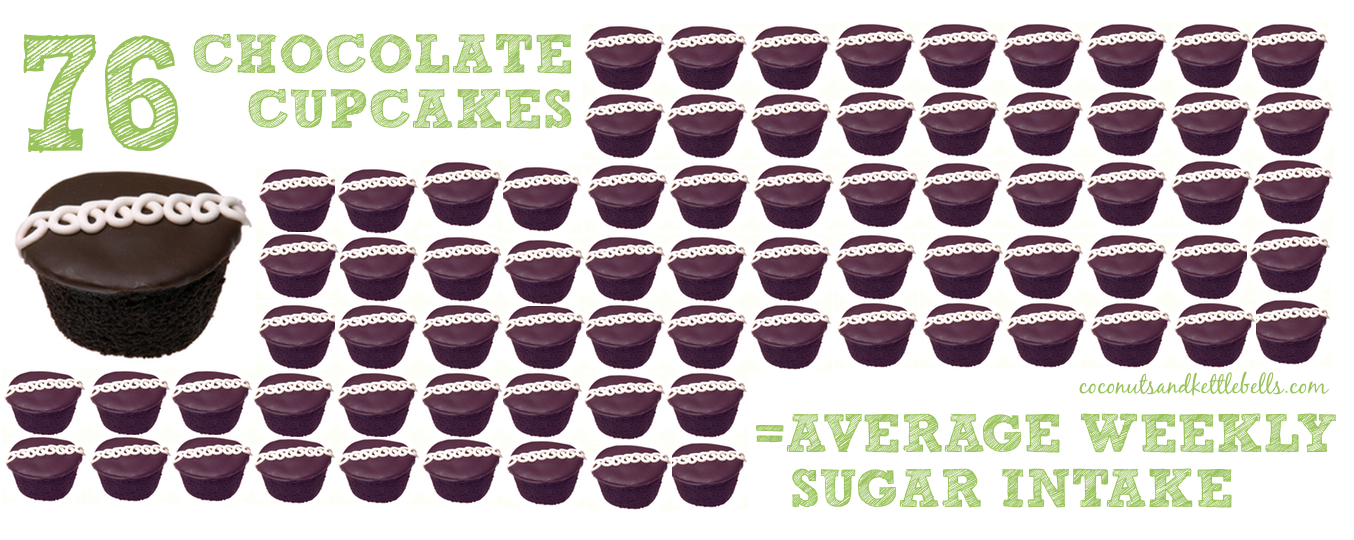
That’s 76 Hostess Cupcakes worth of sugar every 7 days – and it’s coming from our “low fat” diets heavy in cereals, granola bars and frozen dinners – and is hidden in everything from tomato sauces to soups that we don’t see adding up.
How Did We Get Here?
How have we gotten to this outrageous reliance on refined sugar for food palatability and to make us happy? Let’s explore.
We’ve Become Dependent on Sugar
Refined sugar not only makes things taste amazing, it’s also has been shown to evoke a response in the brain similar to the neurological response that occurs with substance abuse.1 A recent study published by the American Journal of Clinical Nutrition found that refined, sweet foods elicited activity from the brain in the right nucleus accumbens which is the brain’s “pleasure center” that affects our motivation, pleasure and addiction.2 This study also found that sugar impacts our perceived hunger, and leaves us wanting more food in comparison to low-glycemic foods.
Sugar also affects us by increasing the release of dopamine, a powerful neurotransmitter in the brain responsible for predicting or reinforcing “rewards.” It also leads to “abuse” by which we consume more than we need because it overrides our body’s ability to tell our brain we’re full. [3][4] Your “sweet tooth” may actually not be the cute, innocent character trait that so “happens” to certain people.
Manufacturers Put Sugar in Everything
Since sugar often makes us want more – guess what that means? Manufacturers love to put sugar in everything – including chips, french fries, salad dressing, bread, cereals and more so you’ll crave these food products and want to buy more. Not only that, but manufacturers are smart and add different types of refined sugar to foods so that it doesn’t end up as the first ingredient on the list when you flip over the box and take a peak.
For example, take the ingredients Trader Joe’s Vanilla Almond Clusters Cereal:
Whole rolled oats, milled cane sugar, corn flour, rice flour, vegetable oil (canola and/or safflower and/or sunflower oil), almonds, cornstarch, whole wheat flour, brown rice, honey, salt, barley malt syrup, natural flavor, annatto (for color), purple carrot juice (for color), turmeric (for color).
That’s 3 teaspoons of sugar in three different forms to help you start the morning well? Yeah, not so much. Not to mention, processed vegetable oils and refined, genetically modified grains in FIVE different forms.
With that, let’s check out five harmful effects of sugar that can occur when it’s overconsumed in highly refined sources.
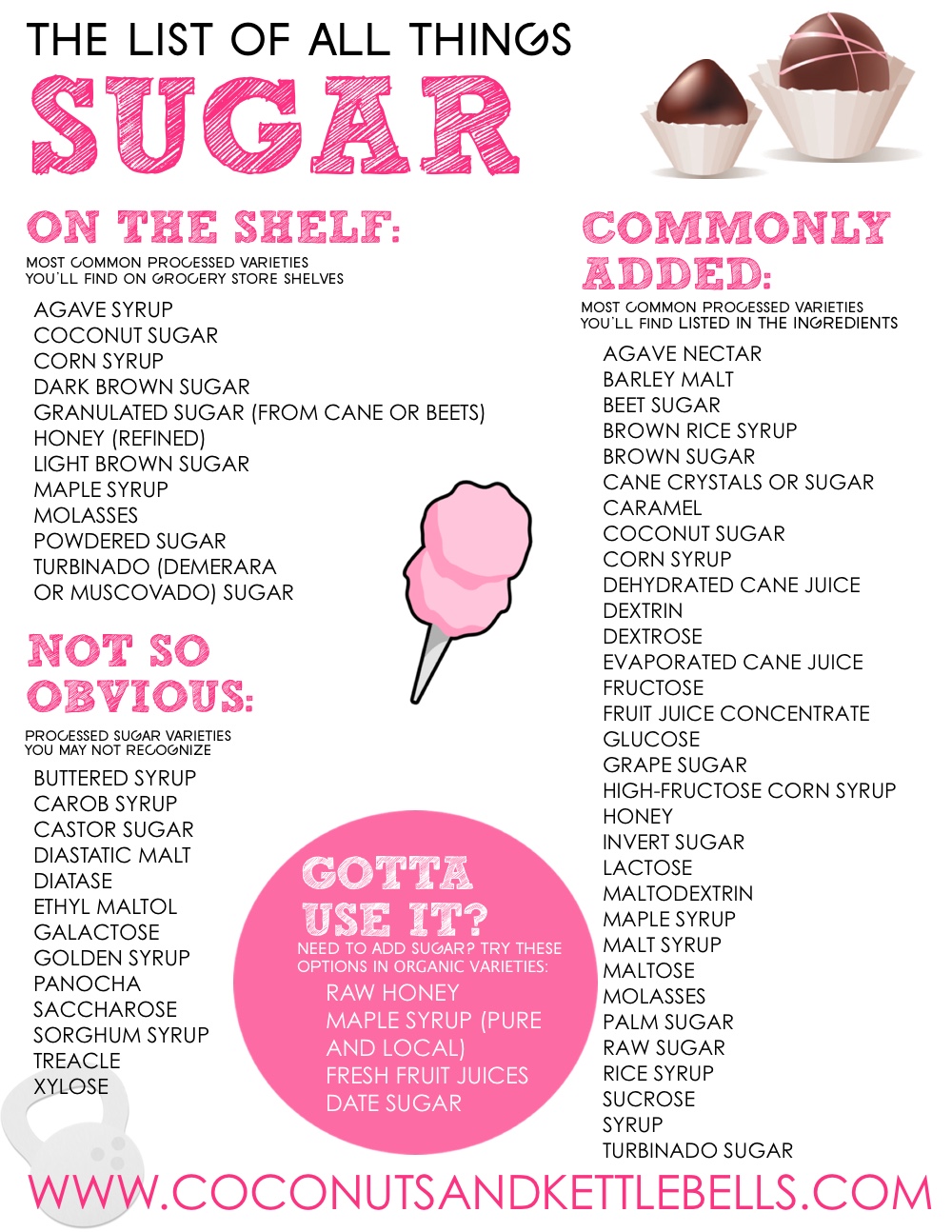
5 Things Sugar is Stealing From Your Life
1. Nutrients
When your body processes carbohydrate (remember, sugar is a carbohydrate) – it takes vitamins and minerals to metabolize the food, specifically B vitamins, phosphorous, magnesium, iron, copper, manganese, zinc and chromium. When you consume sugar that is highly refined, you’re continually depleting your cells of these micronutrients without adding anything back besides the caloric content it contains. Processed sugar has no value to your body and leaves you in the negative.
Surprisingly enough, one sweet potato, a carbohydrate available in nature that’s actually human food, contains energy, but also contains B vitamins, phosphorous, magnesium, iron, copper, manganese, zine and chromium, the exact nutrients it needs to be processed in the body, with even more to “deposit” in cells.
2. Energy and Sleep
Let’s connect the dots with this one. If you’re constantly eating a substance that depletes your cells of nutrients and energy, your body won’t have cellular energy to expend – leading to fatigue and low energy levels. In addition to this, when you eat a diet high in refined carbohydrates and sugar, you can develop issues regulating blood sugar, which can cause the ever popular “blood sugar crash” accompanied by brain fog, dizziness, and tiredness.
Having sleep troubles? At night, our body needs to burns fat in order to supply us with a steady amount of energy during the 8-10 hours without food. When you eat a diet high in refined carbohydrate foods, your body has a hard time “shifting” to fat burning from constant sugar burning, leading to disrupted sleep and insomnia. Even more detrimental, sleep deprivation increases your risk for insulin resistance, diabetes, and obesity, and leads to an increase in hunger and cravings for carbohydrates and sugar.[5][6][7] (And so, the cycle continues.)
3. Immunity
Refined sugars in your bloodstream curb the ability of white blood cells to be able to respond to pathogens that can make you sick. Studies show immune cells demonstrated a significantly reduced capacity to kill things like viruses and bacteria following sugar consumption when compared to fasting levels.[8][9]
Depleted nutrients and immune suppression doesn’t just mean you feel crappy or develop a cold, it also means you are far more likely to develop serious chronic diseases and conditions long-term. In fact, diets high in refined sugar have been shown to increase risk in experiencing heart disease, dementia, and yes, even cancer.[10][11][12]
4. Long-term Health
Studies show that a diet high in refined sugar and carbohydrates can cause inflammation, which causes pain, overheating, redness and swelling.13 It’s also been shown to cause significant oxidative stress.14 Unfortunately, this inflammation is the chronic inflammation that is silent and can’t be felt, yet causes damage to cells, brain, nerve tissue and blood vessels. This type of inflammation can inhibit your performance and recovery, and is now considered to be the main contributor to some of our nations most debilitating diseases.
5. Satiety
Our hunger is regulated by hormones. Leptin is a hormones that controls our intensity and desire to eat, as well as our exercise and movement levels. Leptin is secreted by our fat cells to let our brain know how much stored “energy” we have in place and what to do with it. It’s also secreted after we eat to tell our brain when we have consumed enough energy for our bodily needs. So, with this beautiful, complex regulation process in us, how is it that we can chronically overeat or become overweight? It’s an unfortunately adaptation called leptin-resistance.
Leptin and insulin work in tandem to manage metabolism and the storage and release of fat. If you’ve read Why Grains Are Bad For You (sometimes) – you’ll remember that insulin is a hormone that is released when we consume carbohydrate to get the carbs (glucose) into our muscles and liver, as well as into fat cells (in the form of triglycerides) for storage.
When you have a diet high in processed carbohydrate and sugar-based foods like breads and pasta, insulin levels are chronically elevated. This continuous insulin secretion means leptin is also being released regularly. You’d think that’d make us stop eating, right? Unfortunately, no. Research suggests that certain aspects of the metabolism of refined sugars can interfer with the hormones that control our appetite.[15] Over time, leptin-resistance can occur by which leptin receptors in the brain get “gunked up” and no longer receive the messages.
And yeah, it’s as bad as it sounds. When your brain doesn’t register leptin, your body thinks it’s skinny and starving, and continues to request more food. In fact, some doctors suggest sugar and leptin-resistance are a big contributor to obesity.[16][17]
And that’s not all. Glucagon is the counterregulatory hormone to insulin, meaning it performs the opposite action that insulin does. So, glucagon’s job is to mobilize and “burn” stored energy and fat. Yippee! A body that is fueled by a diet high in processed carbohydrate and sugar, which usually includes “snacks” and constant “grazing” throughout the day means glucagon doesn’t gets the chance to go to work. As a result, your body gets really bad at burning fat for fuel, and continually wants to burn sugar (specifically, sugar you’ve just consumed) throughout the day. This is why a diet high in processed carbohydrates usually makes one continually hungry. Not fun.
How to Kick the Sweet Tooth
No, you don’t need to flip the switch and obsessively remove all forms of sugar from your diet. In fact, there are plenty of natural sources of sugar that can be part of a healthful diet, and consuming your favorite candy every now and then isn’t going to ruin your life.
But, if you’re someone who has developed a dependency on sugar, it can be hard to imagine your life without processed sugar. The good news is – like most things, it does get easier.
Once you’ve spend some time clearing your home of the “obvious” sugar monsters, start making yourself aware of where added sugar can occur. Look closely at things with a label. Sugar is known to lurk in sauces, soups, salad dressings – and even almond milk and nut butters. Once you get through those first few “tough” days (or weeks), you’ll find that actually stop craving the fake sugary foods, and find a new appreciation for the taste of real food. Foods like beets and berries become incredibly sweet and delicious, and root vegetables like sweet potatoes, turnips and carrots become more savory.
Of course – this won’t happen unless you provide yourself with solid replacements for the foods you’ve tossed. Stock up on natural sources of satiating fats, and meet your energy need requirements with whole carbohydrate sources like starchy vegetables, fruits, or properly prepared grains. Eliminating sugar doesn’t mean never having it again – but instead, proactively pursing other food choices for optimal health and leaving room for sweet “treats” when you’d like them.
If you’re the type of person who needs a program to rid yourself of the harmful effects of sugar, I highly recommend going through a Whole 30, or a 21-Day Sugar Detox. You’ll feel amazing afterwards.
To make sure you’re not being deceived by the many names of sugar, I’ve created a downloaded .pdf with all the names of sugar (shown above.) Download it here so you can arm yourself with it when shopping at the grocery store or cleaning out your pantry.
What worked for you when kicking sugar to the curb? Share your tactics below!
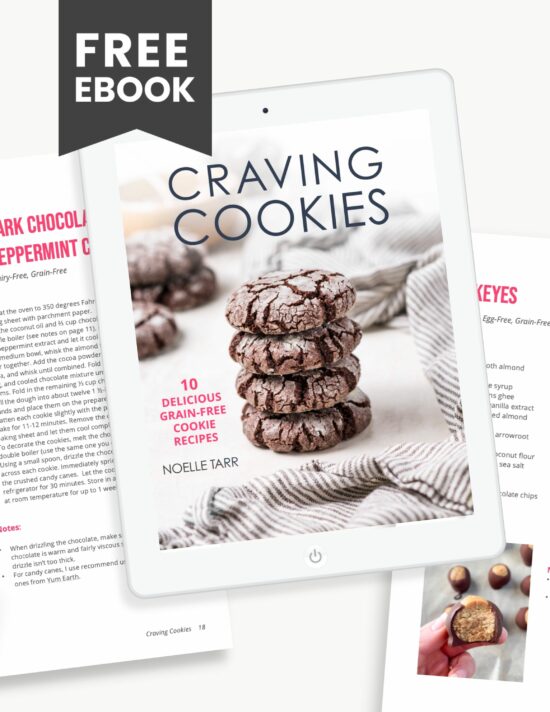

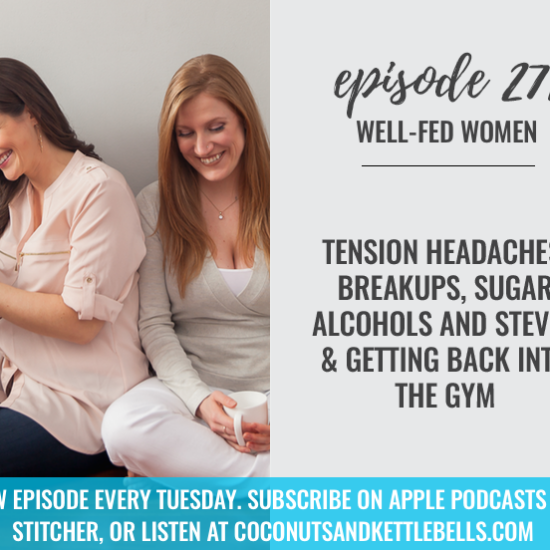
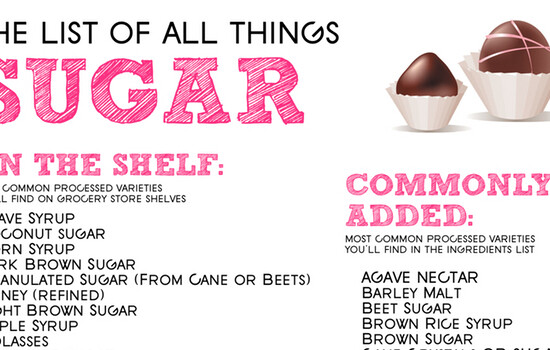
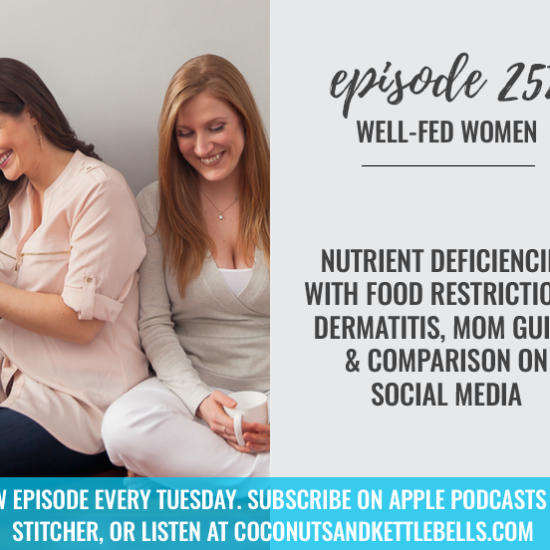
Ellen de Lemos Forte says
Noelle –
Your synopsis on SUGAR is so powerful and right on target! I am going to share your post with everyone I know – it is a clear, concise and “fun to follow” road map spelling out WHY & HOW we got here in America – as well as moving evidence as to why we need to get OFF the drug! Keep rockin, girl! Great work!
Noelle says
Thank you Ellen! So happy you enjoyed it. I am SUPER passionate about how horrific sugar is for the body, so this post is close to my heart! I so appreciate your support!
Olin Saunders says
Sorta like the Genesis 1 :29 diet’ Very good Noelle. So now we need some daily meal plans !!!!
Sonya Palumbo says
I just read this & will be reading it again to absorb all the info. The sweetness I’m tasting from my ice coffee is telling me I need to make changes.(Like dump the rest of it
down the drain) I just found your blog & I’m sharing it with everyone I know. Thanks for all your hard work.
Noelle says
Sonya! Thanks for your kind words. So glad the article has helped! 🙂
Iva says
What helped me to reduce the refined-sugar intake was to develop a new morning routine (green smoothies instead of sugared coffee plus sometimes a good-quality-no-sugar-added coffee as a treat – also got rid of drinking too much coffee this way) and afternoon snack replacement – nuts instead of chocolate. Probably ate way too much nuts in the beginning before I got more creative with other snacks.
Noelle says
Iva – good suggestions! Thanks for the comment! 🙂
Holly Maree says
Hi Noelle, what is your take on dates and stevia? With the “I quit sugar” trend has come an increase promotion of raw vegan deserts using lots and lots of dates and also cakes, cookies, chocolate etc using stevia. I have gotten on the stevia train and now use it in my baking/make my own raw chocolate. but not sure if this is any better. Also the date based desserts seem loaded with sugar to me and even though it’s natural, is it still doing the same kind of harm? Also the people over at I Quit Sugar.com use rice malt syrup as a substitute. What is your opinion on that? Thanks!!!
Noelle says
Hi Holly! Thanks for your question – and the support! Personally, I’m not a fan of sugar substitutes, for the reasons I talk about in this article. I think using pure stevia leaf extract has it’s place, but I typically recommend sticking with whole foods when looking to sweeten something. I typically use raw honey in small amounts in desserts or baked goods when I make them. I think dates are fine. I sometimes eat them whole as a dessert. But, I’m not sure there’s any point using a ton of dates, or rice malt syrup (which is just sugar derived from rice), is the best idea if you’re trying to reduce sugar in your life. Hope that helps!
Cynthia Barker says
It feels really awesome getting your energy level back after tossing a suger addiction to the side